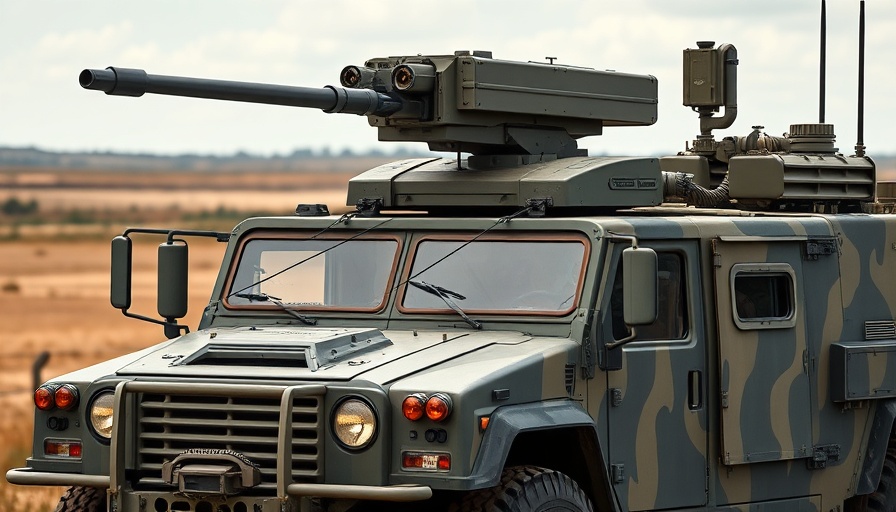
Introduction: A New Weapon Against Drone Threats
In a rapid response to the escalating threat of drones, the Israel Defense Forces (IDF) are revamping their artillery capabilities. The revived Vulcan cannons, a decommissioned piece of military technology, are set to return to active service by August. With eight upgraded systems, the IDF aims to intercept drones that pose risks to national security.
The Strategic Importance of the Vulcan Cannon
The Vulcan cannon, recognized for its speed and precision, can fire up to 3,000 rounds per minute, making it an effective tool against aerial threats. As drone technology advances, so does the necessity for an efficient defensive system to counteract them. The IDF's decision to activate these cannons suggests a strategic pivot toward utilizing older systems reconfigured to combat modern threats—a vital approach given the rising number of drone incursions in the region.
Historical Context: Reinvigorating Legacy Military Technology
Originally designed for use in the mid-20th century, Vulcan cannons have seen various operational roles over the decades. Their revival highlights not only the changing landscape of warfare but also emphasizes Israel's resourcefulness in military strategy. The decision stands as a testament to how traditional military hardware can be adapted to meet contemporary challenges, particularly in the face of drone warfare that has grown more sophisticated.
Global Perspectives on Drone Interceptions
Israel is not alone in grappling with the implications of drone technology. Across the globe, nations are investing in defensive measures against unauthorized drone flights, particularly in sensitive areas like borders and military installations. By refurbishing the Vulcan cannon, Israel sets a precedent that may inspire other countries to revisit older technologies as they seek effective, rapid-response solutions to modern aerial threats.
Engaging the Community: The Broader Implications
For communities invested in peace and security, the adaptation of military technology such as the Vulcan cannon raises questions about the balance between defense and diplomacy. Engaging believers and humanitarian efforts can contribute to a wider discourse on how security measures respect human rights while addressing genuine threats. It also invites interfaith dialogue on the moral implications of military engagement in defense of civilian lives.
Call to Action: Reflect on Military and Humanitarian Balance
As we see nations like Israel adjusting their defense strategies in response to technological advancements, it's crucial for communities of faith to reflect on the implications of these developments. How can we advocate for peace while understanding the necessity for security? Engaging in dialogues that prioritize compassion alongside defense can lead to greater understanding and positive actions within our global community.
 Add Row
Add Row  Add
Add 








Write A Comment